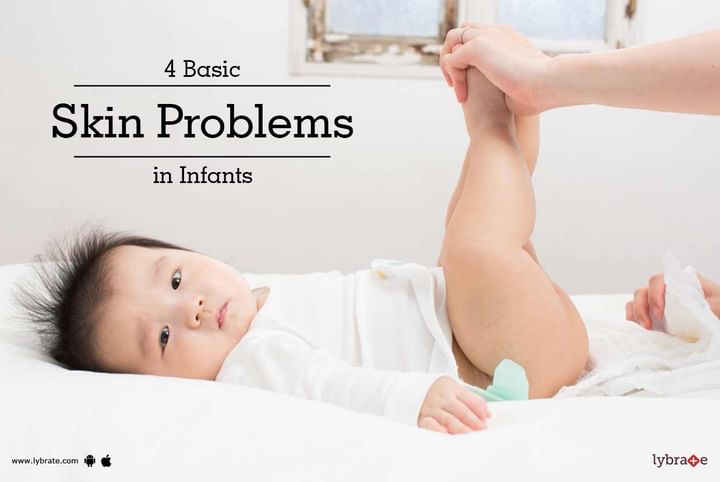Get the App
For Doctors
Login/Sign-up
Last Updated: Jan 10, 2023
BookMark
Report
4 Basic Skin Problems in Infants
Your baby's skin requires constant care and protection because it is exposed to the ravages of pollution, dust and harmful UV rays. A healthy skin also has aesthetic benefits apart from being disease resistant.
It takes about a year for the epidermis of a baby to develop and function effectively. Once the baby turns one, the skin gets thicker and more immune to skin problems.
Here are four common skin problems found in almost every infant:
- Prickly heat rashes: Prickly heat rashes are the rashes, which develop on the face, neck, back or the bottom of the baby because of heat. To deal with this situation you should try to keep the infant cool and dry (not let him/her sweat) and ensure that they wear loose and comfortable clothes made of cotton.
- Seborrhea: Rashes that develop on the scalp, eyebrows, cheeks, chest, and/or neck of a newborn baby (up to 6 months), are known as seborrhea. It appears to be gruesome, but does not bother the baby. It is recommended to use mild baby shampoo and creams to get rid of the problem. If there is no improvement, consult a dermatologist.
- Eczema: About 20% of the babies suffer from a very itchy skin rash known as 'eczema'. The affected area of the skin may turn red, ooze pus or crust over. It can be a result of an irritation caused due to sweating in a hot weather or due to the drying up of skin in a cold weather. Some clothing, specifically wool can even trigger this skin condition in a baby. A dermatologist or a paediatrician should be consulted in order to know what should be done.
- Diaper rash: Diaper rash is the development of red and inflamed skin in the area under the diaper. It is recommended to check the diaper for any wetness at regular intervals, and to change it when required. The diaper should not be too tight or left on too long. Applying a diaper rash ointment and keeping the area dry and open whenever possible can help in relieving your baby from the problem.



+1.svg)
